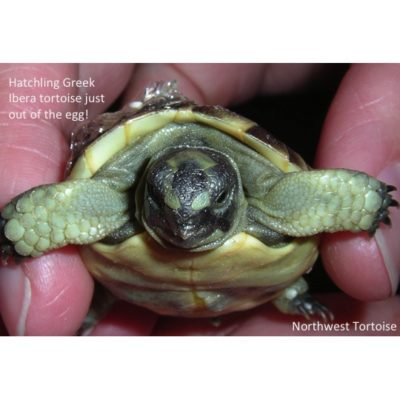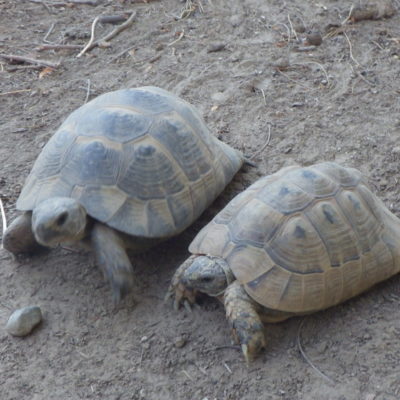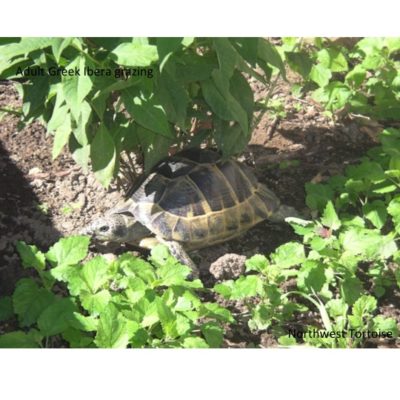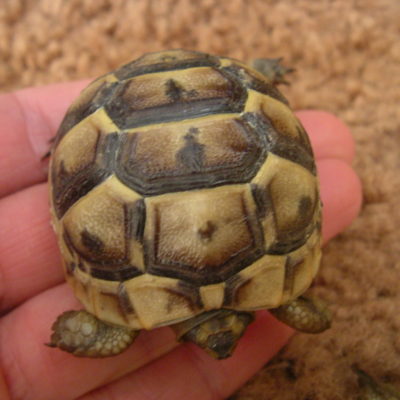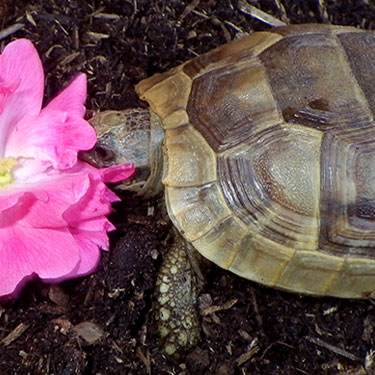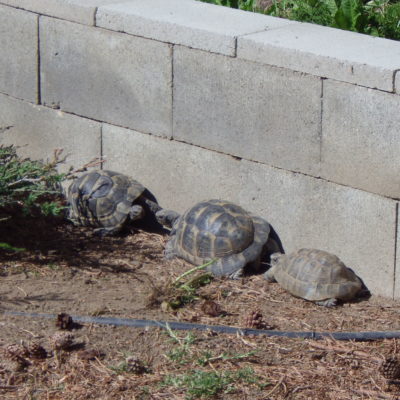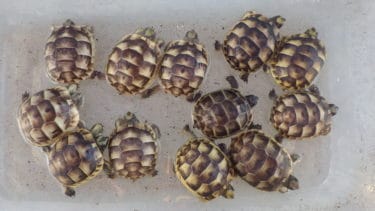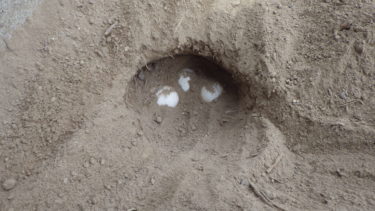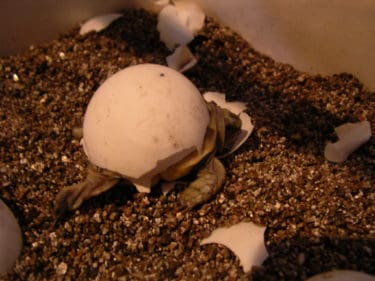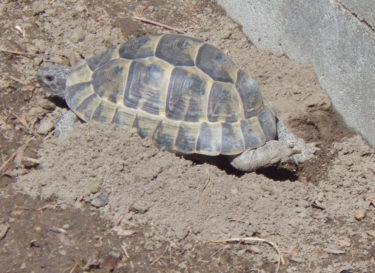*2012 and 2014 Eastern Box Turtles and Greek Iberas are sold out.*
General Information
**The following information is meant to give the novice keeper a BASIC place to start with the species. More information (web links, info graphics, recommended books, etc.) can be found on the RESOURCES section of the website. **
The Greek Ibera (Testudo graeca ibera)
Greek Ibera (Testudo graeca ibera) or sometimes called the ‘Turkish Spur-thighed tortoise.’ It’s preferred not to use this outdated name due to the confusion with what some call the ‘Spur-thighed’ tortoise, referring to the Sulcata (Geochelone Sulcata).
The Greek Ibera is part of the collective ‘Greek tortoise’ category. Native to much of the Eastern Mediterranean and some of Eastern Europe including Bulgaria and Romania. The ‘Greek tortoise’ has been a popular pet tortoise in Europe for many generations. There are many subspecies of the Testudo Graeca family named and being named daily. Many of these subspecies are entering the pet trade daily as well.
The Greek Ibera is a hearty tortoise and fits well into the dry Eastern Washington climate. Their natural habitat includes open forests, grasslands and deserts.
Housing Information
Greek Ibera are hardy tortoises that love to wander and graze. Provide a spacious enclosure with access to shade and water. Iberas will eat anything with a leaf. A well-planted area will be mowed down to twigs in no time. Hardy plants such as evergreen bushes and sages will provide shade and are distasteful to the Ibera.
Read the enclosure information page for basic indoor and outdoor enclosure guidelines and browse the picture gallery for ideas.
Feeding Information
greek Iberas require a high-fiber, low-protein diet. Feed grasses, weeds and flowers such as: dandelion, plantain, mulberry leaves, hibiscus, pansies, rose petals, sow thistle, clover, mallow, opuntia cactus pads. NO FRUIT. DO NOT feed meat, dairy or commercial tortoise pellets from pet stores.
Many commercial foods are starting to appear on store shelves. None of these foods represent a complete diet. Some are detrimental to your turtle/tortoise’s health. Do extensive research to be able provide a correct diet.

